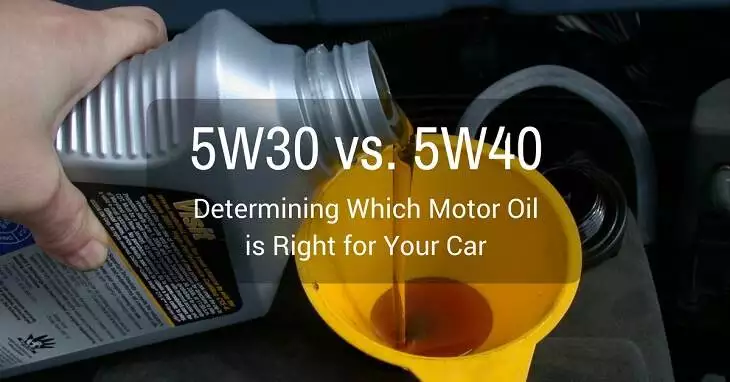A majority of car owners take their vehicles to a garage for an oil change, or if we try to do it ourselves, we often browse through the menu and use whichever oil the manufacturer recommends. Although there is nothing wrong with either scenario, knowing a little about what goes on with your vehicle and having some information regarding the best motor oils for your car is always a good idea as this information can come in handy. Here, we will be comparing the specifications and properties of engine oils 5w30 and 5w40 so you can have a better idea about which oil to use for your car.
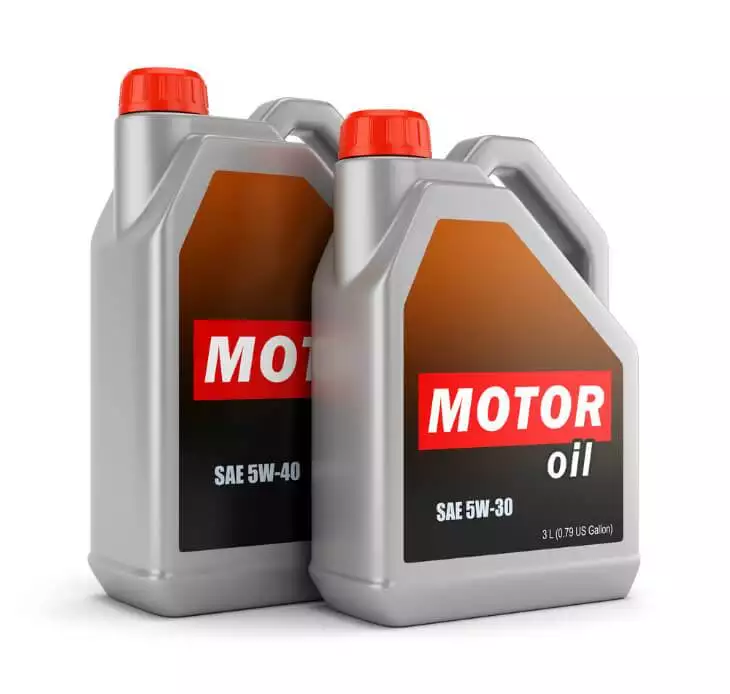
The Society of Automotive Engineers (SAE) has established a statistical code for determining motor oils in accordance with their viscosity characteristics, ranging from low to high: 0, 5, 10, 15, 20, 25, 30, 40, 50, and 60. Viscosity is a liquid’s resistance to flow. Liquids that are thin and runny (like water) are assigned a lower viscosity whereas liquids that are thick and consistent (like honey) are assigned a higher viscosity value. The numerical 0, 5, 10, 15 and 25 are postfixed with the alphabet W, which stands for “winter”, or low temperatures, and not “weight”.
Remember that engine oil changes in viscosity measurements when putting under different temperatures, i.e. depending on the weather outside. When it comes to kinematic viscosity, the numerical values are assigned based on the oil’s ability to flow through an average orifice, at regular temperatures. The longer it takes for the oil to pass through, the higher the SAE code is assigned due to the higher viscosity, which means the 5w40 has a higher viscosity than 5w30.
Read more about the difference between 0w40 vs 5w40.
More...
Quick Summary: Best 5w30 and 5w40 Motor Oils
Product Name | Quality | Price | Our Rating |
|---|---|---|---|
A+ | $$ | ||
A | $ | ||
A+ | $$ | ||
A | $ |
Why Is Thickness Important?
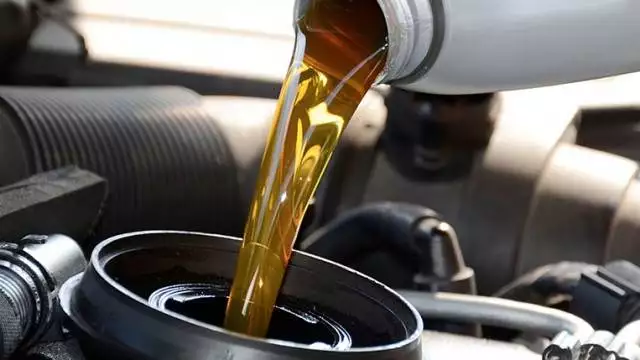
Oil is the lifeblood of any motor, but you cannot get away with using just any motor oil because its thickness plays a great role in its efficiency. The thickness or viscosity determines how well the oil will flow through the engine. The higher the initial number, the thicker or viscous the oil is. Thus, if you live in colder environments or freezing temperatures, you should use thin grade oil, such as the 5w30. All vehicles have a particular oil viscosities/weight, and you can usually find this information on the top of the crankcase, usually on top of the oil cap.
To keep your motor up and running at all times, you should stick to the mechanic’s or manufacturer’s recommendations regarding motor oil. Thinner motor oil flows more smoothly and quickly when the engine is cold, which is why you should not use anything less than 5W-30 in the summer.
There is no dearth of motor oils that deliver high performance and withstand extreme temperatures, dirty climates, and aggressive driving. Keep in mind that high-quality motor oil lasts longer and you will have to schedule an oil change for later as compared to using any generic brand. It is recommended that you keep 5W motor oil on hand before the first gust of cold strikes.
5W Viscosity
5W viscosity grade calls for the lubricant to properly flow at lower temperatures as compared to, for instance, oil with 20W viscosity, hence you should use it when the weather is cold.
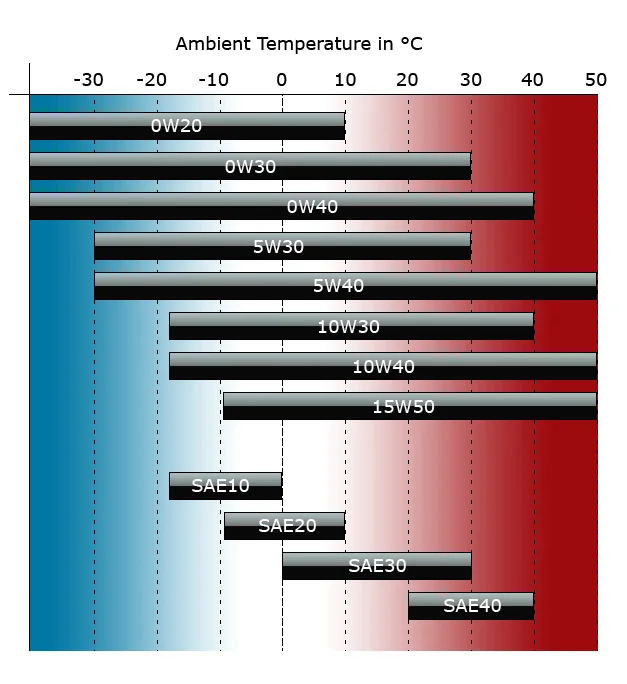
Single Grade vs. Multi-Grade Oil
When the oil heats up, it gets thinner. Single grade oils become too thin when they come into contact with the heat produced by the car’s engine, and this is where multi-grade oil comes in. The idea of this motor oil is simple: use physics and science to stop the base oil from becoming too runny and thin when the engine heats up. The number prior to the alphabet W shows the ‘cold’ viscosity rating of the oil whereas the number after the alphabet W shows the ‘hot’ viscosity rating.
5W30 Motor Oil
5w30 is one of the two most commonly used types of motor oils for various reasons. First, it works surprisingly well with a broad selection of vehicles with different engine types. Second, the oil also covers a diverse range of possible temperatures but is ideal for warmer temperatures. For the most part, the oil works smoothly regardless of the vehicle and the temperature.
5W40 Motor Oil
Although 5w40 is not as common as 5w30, it certainly does have quite many admirable features that optimize the health of your engine, some of which include:
- Protecting the engine from deposit and sludge buildup and damage
- Ensuring the engine revs to life quickly in colder environments and the oil circulates efficiently in freezing temperatures
- Getting to moving parts of the engine fast
The 5w40 acts like a 5-rated single grade oil when it’s cold, but it does not become thin any more than 40-rated single grade oil when it’s hot.
5W30 vs. 5W40
When it comes to choosing between 5w30 and 5w40, many people prefer the former. This is because the 5w30 motor oil has a smooth effect on the oil pump and also a more suitable flow through the engine when hot. However, both these motor oils work great for providing faster lubrication to engine parts when you start the car.
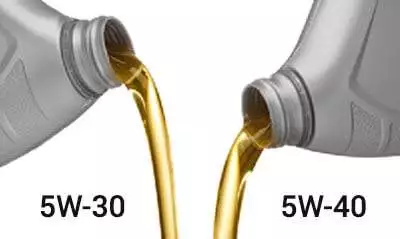
So, if we dig in into technicalities, the number ‘5’ in both oils represents the same viscosity when the engine is cold (startup temperature), but in case of 5w30, the ’30’ represents a lower viscosity when the engine is operating at high temperatures as compared 5w40, which has a higher viscosity.
Takeaway
If you are racking your brain to choose between 5w30 and 5w40, we recommend you go with 5w30. However, if it is too expensive or not available for use, you can always go with the 5w40, which is just as good and will not cause any damage to the engine parts.
